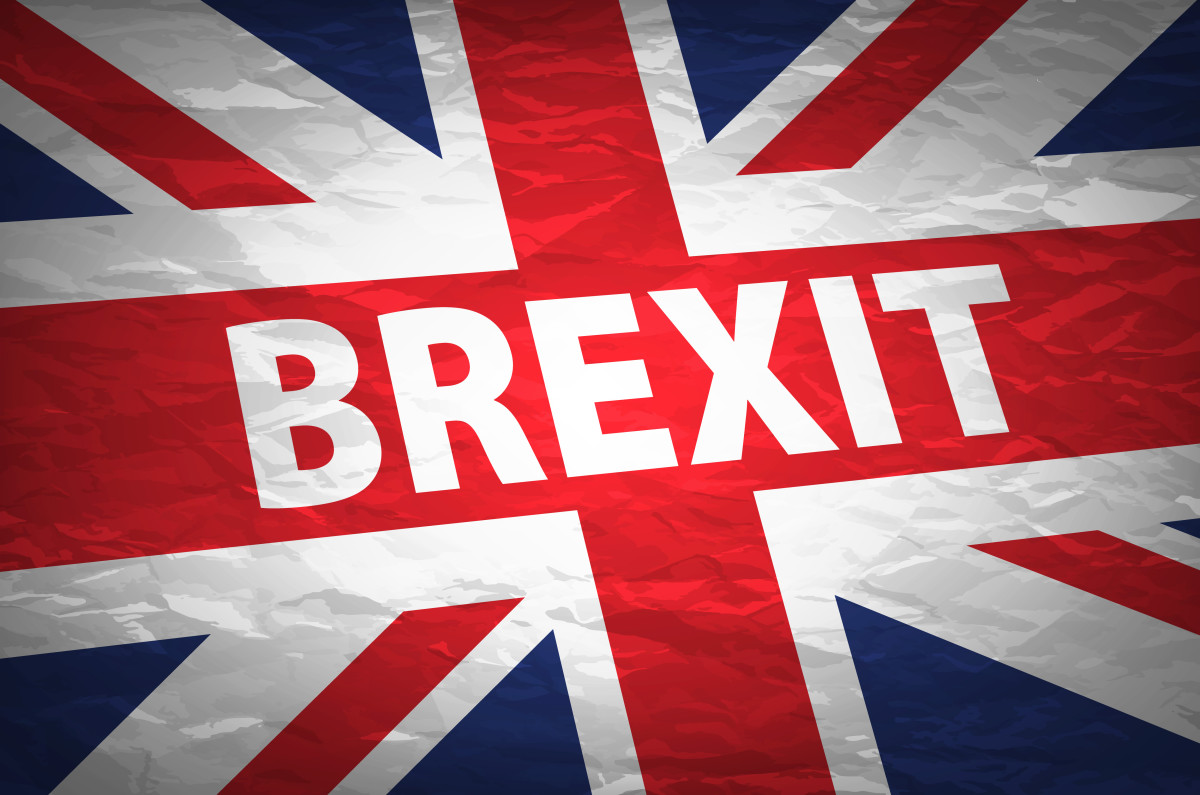Brexit and Britain - The EU Referendum
The EU Referendum
In just a few days time my country will go to the polls in what will be the most important referendum the country has ever faced, arguably more important than the 2014 Scottish Independence referendum as this would have impacted the totality of the UK to a lesser degree than than the upcoming EU Referendum.
Below I have noted down some of my arguments for why I am voting for Brexit. I may not convince you to change your position, but as a liberal I wanted to set out my argument for leaving the European Union.
“We shouldn’t be governed by unelected bureaucrats, we should decide our own laws and how we spend our own money!!”
As said by many people on the Brexit side.
The argument over who should govern us and where we should be governed from is about more than the percentage of laws which are made in one parliament or another. Incidentally working out that percentage is much more complex than either the Leave or Remain campaigns have publicly acknowledged. Estimates range from as low as 7% all the way up to 70%. Both these numbers are both right and wrong. Do we count directives and regulations or just one or the other? Directives are instructions to harmonize laws. They have to be passed through national parliaments to become law. Regulations don’t have to pass through national parliaments, they are self enacting.
It is also not an argument against close cooperation with other nations. In areas such as climate change, global terrorism and taxation it makes very good sense to cooperate across national borders. However, does this necessitate the creation of a new state - a federated states of Europe to do so? (I’ll look later at why you can class the EU as already being a state). Nations can come together through supra-national mechanisms such as the United Nations Framework Convention on Climate Change. Intelligence is already shared across national borders where appropriate. Intelligence cooperation across national borders is a complex problem and does raise issues of civil liberties for residents of different (nominal) states. I’ve linked to an article produced by the EU’s own institute for strategic studies here.
My criticism with the governmental system of the European Union is two fold. And covers the EU’s legislative process as well as the type of law enacted in the EU.
BREXIT POLL
Should the UK remain part of the European Union.
How laws are created in the EU and UK
This is quite a complicated section due to the messy nature of both the UK and EU political systems. Note, I am not arguing that the status quo within the UK system is perfect, there are glaring issues which a written constitution and an elected second chamber could go towards solving.
In the UK, legislative initiative (i.e. the ability to propose a new law or to repeal an existing but outdated one) rests with parliament. The three areas of power, legislative, executive and judiciary are separate.
Executive power resides with the Monarch of the day and is nominally carried out by the government's (prime or first ministers and their cabinets) in Westminster, Holyrood, Cardiff and Stormont. Executive power is exercised by the prime minister on behalf of the monarch via Royal Prerogatives. Executive power includes:
-
The power to dismiss and appoint other ministers
-
The power to command the Armed Forces of the United Kingdom
-
The power to create corporations (like the BBC ) via Royal Charter
-
The power to ratify and make treaties
-
The power to declare War and Peace
-
The power to recognize states
The legislative is Parliament as a whole, both House of Lords and House of Commons. A bill (or new law) can be proposed by either houses of Parliament, though mostly they originate from the House of Commons.
Sometimes a law or bill can be passed through without ratification from the House of Lords - such as a money bill, but the common case is that they are reviewed and ratified by the House of Lords. Any sitting MP can propose a new bill, they don’t have to be from the party with a parliamentary majority. In addition, members of the House of Lords can also propose new bills.
For further information on how laws are made in the UK, see the UK Parliamentary website www.parliament.uk/education/about-your-parliament/how-laws-are-made/
So What’s The Difference In The EU?
The EU is comprised of several organs, the European Commission, European Council (not to be confused with the Council of Europe which is not part of the EU), The Council of the European Union, the European Parliament and the Court of Justice of the European Union (not to be confused with the European court of Human Rights which is not part of the EU. Confused? Well a lot of people are and the sheer number of bodies and the fact that several share far too similar names obfuscates them from public awareness, understanding and oversight.
Remember in the UK the executive and legislative are nominally separated. Executive power rests with the monarch and is enacted by Cabinet. Legislative power resides with parliament as a whole. This would lead you to think that the European Parliament is the source of European law, i.e that MEP you probably don’t vote for based on turn outs can propose or initiate a bill or law.
You can find a list of the powers the European Parliament and thus your MEP have here. Read through it and you’ll notice one very big power that MP’s in the UK have is missing. Legislative initiative. Whilst your MEP get’s to vote up or down on proposed legislation, they do not and can not directly propose legislation. I’ve emphasised ‘directly propose’ as this is a very important distinction within the EU’s legal framework. The parliament can ask the Commission to suggest a law for it to then rubber stamp.
EU legislation is proposed by members of the European Commission. What is the European Commission you ask? The Commission is made up of 28 members or commissioners as they are known. One from each EU member state. The Commission functions as the EU’s cabinet government. It is headed by the President of the European Commission (not to be confused with the President of the European Parliament). The President of the Commission is selected by the European Council, made up of the heads of state of the EU members. The president selects a cabinet of Commissioners based on suggestions from each country.
To quote from the EU’s website:
“The European Commission is the EU's politically independent executive arm. It is alone responsible for drawing up proposals for new European legislation, and it implements the decisions of the European Parliament and the Council of the EU”.
Note a couple of points from this. How politically independent can it be when the president is selected by the national heads of state? It is the sole route to legislative initiative and it implements decisions of the parliament. So it proposes a law, the parliament rubber stamps it, then it enacts the law. The council has both executive and legislative power in the same body.
Read more about the EU’s legislative process here http://europa.eu/eu-law/decision-making/procedures/index_en.htm
Common Law vs Civil Law.
Common Law is the legal system used in England, Wales and Northern Ireland (Scotland has a separate, rather unique legal system). Civil Law is the primary system used on the continent. Common Law could be described “everything which is not forbidden is allowed”. A opposing description often levelled at the Germanic system is “everything which is not allowed is forbidden”. Whilst these aren’t 100% correct, it is a good illustration of the different approach taken to the law in different countries.
Common law systems extensively use legal precedent, case law and it is considered the most importance source of law with judges having a more active role in shaping law. It allows laws and punishments to vary with the prevailing social climate. You don’t need to change a law via an act of parliament, it can be changed by a judge when needed. Civil law is more codified with statues to cover every eventuality. Judges merely enact the law.
How this affects your vote comes down to which system of justice and representation you favour. The UK’s system of fully representative democracy allows British citizens to effectively hire and fire the people who make and enact our laws. Under the Brussels system your vote at the ballot box can not out vote policy positions you disagree with. You are also not, at any point, voting for the people who have legislative initiative. Unelected commissioners can initiate new laws on things such as the minimum rate of VAT and whether it’s levied against goods such as tampons, energy bills and food.
The Economic Argument
I’ll begin with the caveat that anyone who confidently tells you exactly what will happen in the event of either side winning the referendum is either deliberately misleading you, ill informed or deluded, words which I do not use lightly.
Between the two camps and even within them there are multiple voices with differing predictions. Depending on where you sit these predictions range from a virtual economic apocalypse to an economic garden of eden. FullFact.org have a great guide to the difficulties of making long term economic forcasts. To quote from them:
“Claims about the future are much harder to validate – especially since we’ll never know what could have happened in alternative scenarios, had different decisions been made.”
One of the big differences in these claims are the different judgements economists made about the effect and degree of uncertainty, the degree of potential exchange rate fluctuations, the outcomes of trade negotiations, levels of investment, future regulatory environments and migration levels. Most models do predict, at the least, a short term shock to both the UK and global markets, exchange rates and economic performance. Longer term effects are harder to pin down as we looked at.
Many of the organisations which today predict doom and gloom in the event of a Brexit were blindsided by the 2007/08 financial crash and following crisis. Zero Hedge has a selection of charts showing how many times the IMF revised its growth charts for 2011 - 2014. This isn’t to say the IMF or any of the other organisations are wrong this time, but to illustrate that they have been pretty spectacularly wrong in the past.
Okay, so the economic predictions are not necessarily right or wrong. As such we shouldn’t base an important decision on a premise which is unknowable.
You, Me, Importers, Exporters And The Economy.
There have been a lot of pretty scary headlines about billions of pounds being wiped off the FTSE 100 and the pound tumbling. At the time of writing the Pound - dollar exchange rate was £1 - $1.42, a bit lower than the historical average of $1.64. Whether or not this is good or bad for you depends on who you are (a business or individual) what you buy and where you buy it from. If you are buying goods on the international market denominated in dollars you are losing out. You will also lose out when travelling abroad as your pound won’t go quite as far. This also makes it attractive for people to hold cash, shares and bonds in other currencies. However, if you are an exporter then a weaker pound makes your goods or services cheaper and potentially more attractive to international buyers. It is very hard to put a number on the level of uncertainty and exchange rates also depend upon speculative attacks from hedge funds looking to make some quick cash. There are lots of methods used to determine the level of these attacks and any conclusion is a rough estimate. We simply don’t know what would happen.
A fall in the value of the pound might affect interest rates and this is very often presented as being a bad thing. Since the crash of 07/08 most of the G20 nations have had historically low interest rates. Rates were lowered at the time to stimulate the economy by making it unattractive to hold onto cash (saving). Rates meant people could also borrow more through loans, credit cards and mortgages. This was great for anyone borrowing but disastrous for savers. If you already owned a property or had other debts, low interest rates benefit you. If, however, you are trying to save for a deposit and are struggling to get 0.5% interest where house price inflation is running as high as 7% per annum, it creates a pretty big gulf to bridge. Note also that inflation is around 1.4% or close to three times the interest you can get at a bank. Savers could be in a better position if interest rates rise.
Also looking at property. George Osborne claimed in May that house prices could be worth up to 18% less than if the UK voted to remain. That doesn’t mean your home will drop in value by 18%. If the market is increasing by somewhere around 7% per year, two years growth would add up to a greater than 14% rise (the second years 7% would 7% of a larger total than the firsts). So the real difference in prices could equate to a stagnation or a small dip. Is this bad?
Again it depends on your financial circumstances. A price fall would be good for young people who are desperately trying to save up and get on the property ladder. It could also bring a degree of economic balance to the market which in London has been propped up by foreign capital. I say this as someone with property in London. If my taking a hit means others of my generation get a better chance of getting on the ladder, so be it.
Questions over employment levels, job creation and wage growth are a longer conversation and again answering these questions has to involve a degree of speculation as we don’t know what the outcomes of any negotiations would be.
So Is It All Economic Doom & Gloom?
The short answer is no. According to the ONS, in 2014 the EU accounted for 44.6% of all exports in goods and services. Since 1999 exports to EU countries have fallen from 54.8% to 44.6%. Even this figure might mask exports outside the EU thanks to the Rotterdam Effect. So over half our exports go to countries outside the EU’s single market in goods. These exports are subject to either bilateral trade agreements, EU trade agreements or subject to standard World Trade Organisation rules. They would (largely) be unaffected by leaving the EU.
Would exporters to Europe lose out? If the value of the pound fell against the Euro, then our exporters could actually gain, as we looked at before. The very worst case trade scenario would assume the UK and EU negotiating teams are not rational actors and can’t agree a trade deal means falling back on World Trade Organisation rules. Under such rules, it would be illegal for the EU to apply punitive tariffs to goods from the UK. Should the EU take punitive economic measures, such as raising trade tariffs with the UK (beyond WTO standards) the UK could take legal action in the international courts. It is quite unlikely that we would get to that stage, if we can assume that both sides are rational actors.
It is also wrong to say we would be walking away from unfettered free trade in the EU. Whilst there aren’t tariffs between member nations there other non tariff barriers such as product standards and regulations (all those rules like how firm a cucumber must be to be called a cucumber) which act as barriers between nations. These are there inside or outside the EU.
We often hear that we would have to implement EU laws for access to the single market if we leave. This is true for exporters, they would need to comply with all EU regulations related to their goods and services but we could choose whether we wanted those rules extended into British law covering our internal market. Would a salmon smoker in London have to spend thousands of pounds on EU compliant packaging to label his salmon as containing the allergen ‘fish’ (yes fish had to have an allergy warning that it contains fish!) if we left? We might choose to keep the labelling, but whether we did or didn’t it would be up to those we directly elect to represent us.
Is The EU Already A State?
This is a pertinent question because for for many politicians and political parties across the EU this is the desired destination for the European project. Today’s EU already has many of the de facto characteristics of a state. There are four basic characteristics of a state. These are population, sovereignty, government and territory.
Population. In 2015 the European Union had an estimated population of 508 million.
Sovereignty. This one is a little harder to unpack. The EU uses a system of pooled or combined sovereignty. Each member has renounced or delegated aspects of national sovereignty to the EU institutions in return for being party to them. In certain areas, the EU institutions have sovereignty over national laws. In respect to EU regulations (analogous to an act of parliament in the Westminster system) become law instantly, without having to be passed through national parliaments. EU regulations supersede any national laws already in place in this area. As such it can certainly be argued that EU law is supreme and sovereign in some areas. These regulations are initiated by an unelected body the EU Commission.
Government. With seven institutions, the European Council, the Council of the European Union, the European Parliament, the European Commission, the Court of Justice of the European Union, the European Central Bank, and the European Court of Auditors it is inarguable the the EU has a government.
Territory. A territory is a term for types of administrative division, usually an area that is under the jurisdiction of a state. The institutions of the European Union exert prima facie control over an area of 1.6 million sq miles. Whilst the EU’s external borders are nominally managed by member states, control can be assumed by Frontex (the EU border agency) when necessary. The Commission has proposed that this agency be replaced and national agencies be rolled into a European Border and Coast Guard Agency. In essence, the EU will be policing its borders, alongside and potentially replacing national agencies.
In addition, the European Union has three presidents, a flag, a national anthem - can you name it? There is also a common foreign and security policy, high representatives, its own ambassadors and diplomatic missions (read embassy). It has a seat at the G8 summits and World Trade Organisation and would dearly love a permanent seat on the UN Security Council.
Where the EU itself isn't represented, or when it is only an observer, the EU treaties place the following duties on member states;
1. Member States shall coordinate their action in international organisations and at international conferences. They shall uphold the Union's positions in such forums. The High Representative of the Union for Foreign Affairs and Security Policy shall organise this coordination.
In international organisations and at international conferences where not all the Member States participate, those which do take part shall uphold the Union's positions.
2. In accordance with Article 24(3), Member States represented in international organisations or international conferences where not all the Member States participate shall keep the other Member States and the High Representative informed of any matter of common interest.
Member States which are also members of the United Nations Security Council will concert and keep the other Member States and the High Representative fully informed. Member States which are members of the Security Council will, in the execution of their functions, defend the positions and the interests of the Union, without prejudice to their responsibilities under the provisions of the United Nations Charter.
When the Union has defined a position on a subject which is on the United Nations Security Council agenda, those Member States which sit on the Security Council shall request that the High Representative be invited to present the Union's position.
— Article 34, Treaty on European Union, as amended by the Lisbon Treaty
Member state foreign policy has to be in accord with the Union’s position. It throws up an interesting question if the individual nations interests are misaligned with the Union’s. Whose position takes precedence?
Taken together, the EU already has most of the characteristics of being a state. Throw in the EU army which has been banded around for a few years now and the EU could be considered a full state.
The Referendum
All of this leads us up to this week’s referendum. The question we face in the referendum is not a vote for the status quo either way. Either vote remain and down the line become part of a federal European state, which we are fast on the road to. Or leave and make our own way in the world.
I am voting Brexit. Not because I want an insular fortress United Kingdom which retreats from the world and which stops taking welcoming people from across the globe. I envisage a Britain which strides out into the world. We are currently the fifth largest economy in the world and even if the country's GDP does dip a bit we will still be one of the wealthiest nations in the world. I see a world where we work with nations across the world on matters from tax avoidance to defeating groups like ISIS and working to reduce carbon emissions. As a wet and windy island, the UK could be a centre for renewable energy. We could rebuild our fishing industry, if we also enacted much better policy at the national level too. We would still work on security matters with Nato and still hopefully be a great friend of the EU and the USA, being a bridge between the worlds two giant federations.
A vote for Brexit is scary but it is also ballsy. And it is a hopeful choice too.








